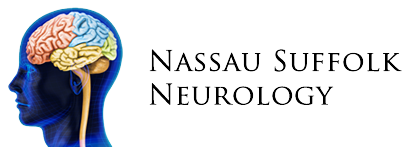What is an ANS study?
If you or someone you know is in need of an ANS study and in search of a neurologist in Babylon, Nassau Suffolk Neurology is here to help you! ANS stands for the Autonomic Nervous System. The autonomic nervous system helps to regulate physiological processes, this includes things such as heart rate, blood pressure, digestion, metabolism, etc. These regulations occur autonomously without conscious control. The ANS resides directly outside the central nervous system and controls voluntary muscles, heart, glands, and organs that contain smooth muscles.
The ANS Can Be Broken Into Two Divisions:
- Sympathetic- This involves the activation of our fight-or-flight responses. The sympathetic output is used to increase heart rate and contractility, as well as other things such as glucose releases.
- Parasympathetic- The parasympathetic nervous system, on the other hand, is anabolic and is used to conserve and restore. During this phase, the heart rate is slowed, and the blood pressure is also decreased.
Autonomic Dysfunction
Through an ANS study, a neurologist can monitor how your sensory, motor and gland-stimulating components are working. It can also assess the sympathetic and parasympathetic activity can improve patient care. Often the ANS can have problems, and this can lead to autonomic dysfunction. Some symptoms of autonomic dysfunction can include:
- Dizziness and fainting when standing
- Sweating abnormalities, this can include sweating too much or sweating too little
- Digestive difficulties, such as bloating, diarrhea, loss of appetite, and constipation
- Urinary problems
- Vision problems
Types of Autonomic Dysfunction:
There are a variety of types of autonomic dysfunction that can affect ANS. These include:
- Neurocardiogenic Syncope: This is a common cause of fainting due to the slowing of blood flow to the brain and often it is triggered by dehydration.
- Multiple System Atrophy: This is a fatal form of autonomic dysfunction. MSA has similar symptoms to Parkinson’s, and it usually occurs in adults over the age of 40.
- Holmes-Adie Syndrome: HAS can mostly affect the nerves controlling your eye muscles in return causing vision problems. One pupil can become larger than the other. HAS can be caused due to a viral infection that damages neurons and also causes inflammation.
How can a Neurologist in Babylon Treat your Autonomic Dysfunction?
Here at Nassau Suffolk Neurology, our highly trained neurologist in Babylon, Dr. Anthony Adamo, has over 26 years of experience in performing an ANS study. This being said, we are here to help treat your autonomic dysfunction. When first being diagnosed with an autonomic dysfunction our neurologist will begin to treat you by addressing the symptoms. It is important to get any underlying disease causing this problem under control. We are here to provide you with the correct test and medical procedures to help treat your autonomic dysfunction.
Neurologist in Babylon
If you believe you are suffering from an autonomic disorder, then look no further then Nassau Suffolk Neurology, located in Babylon. Our specially trained neurologists are here to help you. We are devoted to maintaining the highest standards of clinical excellence and providing every one of our patients with care. To get in touch with a neurologist in Babylon then contact Nassau Suffolk Neurology today! Feel free to visit our website to schedule an appointment.
